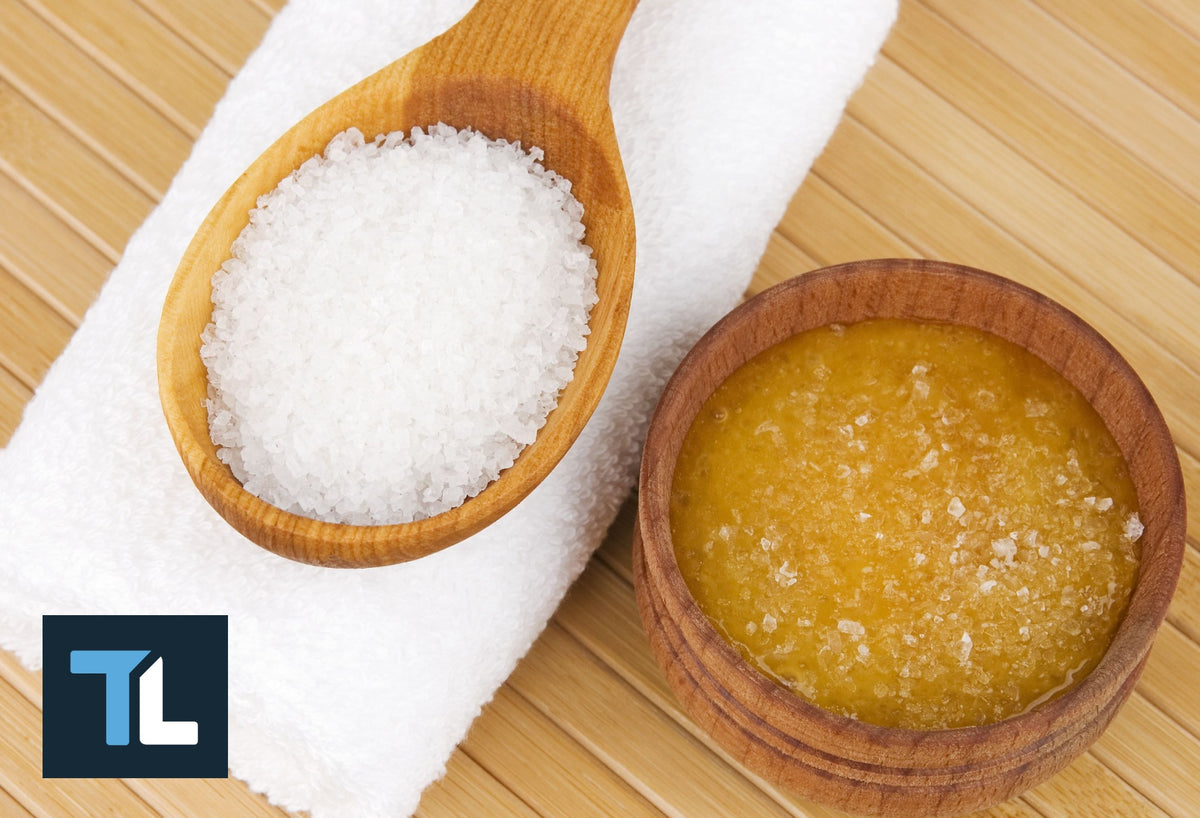The Honey and Salt Pre-Workout Trend: What's All the Buzz About?

The fitness and nutrition realm is trendy, and the so-called "honey and salt pre-workout trend" is another prime example of this phenomenon. Yes, you read that right: The new pre-workout (snack) of choice for some gym-goers and athletes is a simple honey and salt concoction.
Proponents of this trend argue that honey, with its natural sugars, provides a quick source of energy, while salt (sodium chloride) aids in maintaining electrolyte balance, which may enhance athletic performance. Of course, the emphasis is on higher-quality sources of these ingredients, like pink Himalayan salt and organic honey.
At first glance, this combination might seem a bit unorthodox—can a basic pre-workout snack outperform a "good" pre-workout supplement?
The Rationale for Honey and Salt Pre-Workout
Despite the growing popularity of honey and salt as a pre-workout combination among fitness enthusiasts, the scientific community has yet to reach a consensus on its efficacy. There is a paucity of studies examining the effects of this specific combination—in isolation—on exercise performance and health outcomes.
Although some preliminary research suggests potential benefits to either ingesting more salt or honey, there remains a substantial need for rigorous scientific investigations to confirm these findings and explore additional aspects, such as the impact on blood glucose during different types of physical activity and endurance performance [1, 2]. As the current body of evidence is insufficient, further research is necessary to fully understand the broader implications of the honey and salt trend.
Understanding the Role of Carbohydrates and Electrolytes
Carbohydrates are your body's primary fuel source during high-intensity exercise. They're broken down into glucose, which is stored in your muscles and liver as glycogen. When you work out, your body taps into these glycogen stores to provide the energy needed for muscle contractions.
Electrolytes, on the other hand, play a crucial role in maintaining fluid balance, nerve transmission, and muscle function. During exercise, you lose electrolytes, primarily sodium and potassium, through sweat. These electrolytes must be replenished to prevent imbalances that can lead to fatigue, cramping, and decreased performance.
Honey Is Underrated as a Nutrient-Dense Sweetener
Honey is a natural sweetener recognized for its comprehensive nutritional profile, consisting primarily of carbohydrates in the form of simple sugars (fructose and glucose). These simple sugars are easily digestible and provide a rapid source of energy, which is beneficial for nerve and muscle function during exercise.
However, honey provides much more than just simple sugars. It's also rich in vitamins, minerals, and various bioactive compounds. Essential nutrients such as vitamin C, calcium, and iron, though present in trace amounts, contribute to honey’s reputation as a nutrient-dense food. Moreover, honey is a source of phenolic compounds, which are known for their antioxidant properties, helping to mitigate oxidative stress induced by physical exertion [3].
The antioxidant content in honey is extensive, including flavonoids, phenolic acids, ascorbic acid, and catalase, amongst others, each playing a role in enhancing the body's defense mechanisms against free radicals. Anti-inflammatory agents are naturally present in honey and support its use in athletic contexts by aiding recovery and reducing muscle soreness post-exercise.
While both honey and table sugar provide sweetness, honey's intensity is often perceived as greater, a phenomenon attributable not only to its natural sugars but also to its complex aromatic profile. The aromatic compounds present in honey, such as various aldehydes, ketones, and acids, contribute to its distinct flavor and sweet intensity.
These volatile compounds can enhance the sweetness perception, making honey taste sweeter than table sugar even at lower concentrations. This sensory experience may enhance the efficacy of this pre-workout regimen by improving mood and satisfaction before hitting the gym.
Consuming Salt Pre-Workout Makes Sense
Salt, or sodium chloride, is an essential source of electrolyte minerals that help maintain fluid balance and assist myriad physiological processes. During exercise, you lose largely sodium through sweat, and it's important to replenish this loss to prevent dehydration and electrolyte imbalances.
As such, combining honey and salt before a workout can provide a synergistic boost to your performance. Honey provides the carbohydrates needed for energy, while salt helps sustain electrolytes lose via sweat.

Using Honey and Salt as a Pre-workout (Snack)
To maximize the benefits of honey and salt before your workout, consider these recommendations:
-
Timing: Aim to consume your honey and salt mixture about 30-60 minutes before your workout. This will allow your body enough time to digest the honey and absorb the electrolytes.
-
Dosage: The optimal dosage will vary depending on individual needs and the intensity of your workout. A general guideline is to consume 1-2 tablespoons of honey and a few shakes of salt.
-
Delivery Method: You can mix honey and salt into your water or sports drink, or you can consume them separately.
Who Should Avoid Eating Honey and Salt Pre-Workout
Individuals who are mindful of their sugar intake should consider the naturally high sugar content inherent in honey. This natural sweetener provides a quick energy boost due to its variable composition of glucose and fructose, but it may not be suitable for everyone. For those managing conditions such as diabetes, the impact of honey on blood glucose levels can be significant and may render it a less-than-ideal pre-workout snack.
Additional Tips for Pre-Workout Nutrition
While honey and salt can be a valuable addition to your pre-workout routine, it's important to remember that this combo is not a magic bullet, and it's unlikely to improve exercise performance as much as an evidence-based pre-workout supplement.
A well-rounded pre-workout regimen is imperative for maximizing your training sessions and sustaining energy levels during prolonged exercise. For more in-depth guidance, check out our Guide to Pre-Workout Nutrition.









